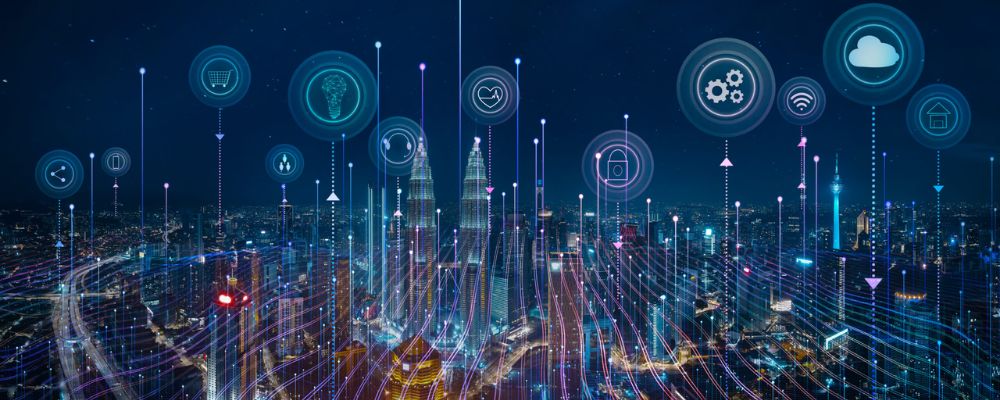
As cities around the world continue to grow and face unprecedented challenges, smart technology is emerging as a key solution for building resilient future cities. This transformation is driven by advancements in artificial intelligence (AI), which are reshaping urban landscapes and enhancing the quality of life for residents. In this blog, we’ll explore how smart technology and AI are creating more resilient, efficient, and sustainable cities.
The Role of Smart Technology in Urban Resilience
Enhancing Infrastructure with AI
Smart cities are leveraging AI to improve infrastructure management and maintenance. AI algorithms can predict infrastructure failures before they occur, reducing downtime and maintenance costs. For instance, predictive maintenance powered by AI helps in monitoring the health of critical infrastructure like bridges and roads, allowing for timely repairs and upgrades.
Optimizing Urban Mobility
AI-driven transportation systems are revolutionizing urban mobility. Smart traffic management systems use AI to analyze traffic patterns and adjust signal timings in real-time, reducing congestion and improving traffic flow. Moreover, autonomous vehicles and smart parking solutions are making it easier for residents to navigate busy city streets efficiently.
Sustainable Solutions for Future Cities
Energy Efficiency through AI
AI is playing a significant role in enhancing energy efficiency in smart cities. Smart grids and energy management systems utilize AI to optimize energy consumption, reduce waste, and integrate renewable energy sources. These technologies contribute to a more sustainable urban environment by lowering carbon footprints and minimizing energy costs.
Intelligent Waste Management
AI technologies are also transforming waste management in cities. Smart waste bins equipped with sensors can monitor waste levels and optimize collection routes. This leads to more efficient waste management processes and reduces the environmental impact of waste disposal.
Ensuring Safety and Security with AI
Advanced Surveillance Systems
AI-powered surveillance systems enhance urban safety by providing real-time monitoring and threat detection. These systems can analyze video feeds to identify unusual activities or potential security threats, enabling quicker responses from law enforcement and emergency services.
Emergency Response Optimization
In times of crisis, AI can significantly improve emergency response efforts. AI algorithms help in analyzing large volumes of data to predict disaster scenarios and coordinate emergency services more effectively. This ensures a faster and more organized response to emergencies, minimizing damage and saving lives.
Building Community Engagement through Smart Technology
Enhancing Public Services
Smart technology is improving the delivery of public services. AI chatbots and virtual assistants are being used by city governments to handle citizen inquiries, provide information, and streamline service requests. This enhances overall citizen engagement and satisfaction with public services.
Promoting Sustainable Practices
Smart technology also fosters community engagement in sustainability initiatives. AI-driven platforms encourage residents to participate in recycling programs, energy-saving practices, and other green activities, contributing to a more environmentally conscious urban community.
Conclusion:
The integration of smart technology and AI is paving the way for more resilient and sustainable future cities. By enhancing infrastructure, optimizing mobility, and improving safety and public services, smart technology is transforming urban living. As cities continue to evolve, the role of AI in shaping their future will become increasingly crucial, ensuring that urban environments are not only smart but also resilient and adaptable to the challenges of tomorrow.
Incorporating smart technology and AI into urban planning and management is no longer a luxury but a necessity for building cities that are prepared for the future. Embracing these innovations will lead to more efficient, sustainable, and resilient urban environments that enhance the quality of life for all residents.






